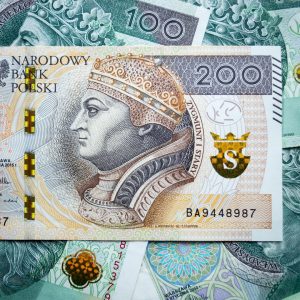The foreign exchange market, also known as forex or FX, is the largest financial market in the world. It operates 24 hours a day, five days a week, and is characterized by high liquidity, volatility, and numerous participants. One of the most important concepts in forex trading is the spread, which refers to the difference between the bid and ask price of a currency pair.
In simple terms, the spread is the cost of trading forex. It represents the commission or fee charged by brokers for executing trades on behalf of traders. The spread is expressed in pips, which is the smallest unit of price movement in forex. For example, if the bid price of EUR/USD is 1.2000 and the ask price is 1.2005, the spread is five pips.
The spread is not fixed and can vary depending on various factors such as market conditions, liquidity, and broker policies. Some brokers offer fixed spreads, which remain constant regardless of market volatility, while others offer variable spreads that can widen or narrow depending on market conditions. Generally, variable spreads tend to be lower during periods of high liquidity and higher during periods of low liquidity.
The spread plays a crucial role in forex trading because it affects the profitability of trades. When a trader enters a long position (buy) on a currency pair, they must pay the ask price, which is higher than the bid price. Conversely, when a trader enters a short position (sell), they must pay the bid price, which is lower than the ask price. The difference between the bid and ask price is the spread, which represents the profit or loss for the broker.
For example, if a trader buys EUR/USD at 1.2005 and sells it at 1.2010, they would make a profit of five pips. However, if the spread was widened to seven pips, the trader would need the price to move by two pips in their favor just to break even. Therefore, traders should always consider the spread when opening and closing positions to ensure that their potential profits outweigh the costs of trading.
There are several types of spreads in forex trading, including fixed spreads, variable spreads, and commission-based spreads. Fixed spreads are predetermined by brokers and remain constant regardless of market conditions. This type of spread is ideal for traders who want to know the exact cost of trading upfront. However, fixed spreads tend to be higher than variable spreads, especially during periods of high volatility.
Variable spreads, on the other hand, fluctuate depending on market conditions, such as liquidity and volatility. This type of spread is generally lower than fixed spreads and can be advantageous for traders who want to take advantage of tight spreads during favorable market conditions. However, variable spreads can widen significantly during periods of low liquidity or high volatility, which can increase the cost of trading.
Commission-based spreads are a relatively new type of spread that some brokers offer. Instead of charging a spread, brokers charge a commission for executing trades. This type of spread can be advantageous for traders who trade in large volumes or who prefer to trade during periods of high volatility when spreads tend to widen. However, commission-based spreads can be higher than other types of spreads, which can reduce the profitability of trades.
In conclusion, the spread is an essential concept in forex trading that traders must understand to ensure profitable trading. The spread represents the cost of trading forex and is determined by factors such as market conditions, liquidity, and broker policies. Traders should always consider the spread when opening and closing positions to ensure that their potential profits outweigh the cost of trading. By choosing a broker with tight spreads, traders can maximize their profits and minimize their trading costs.






